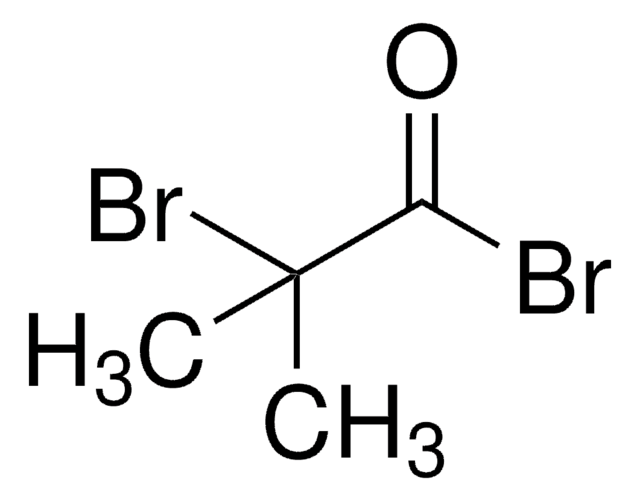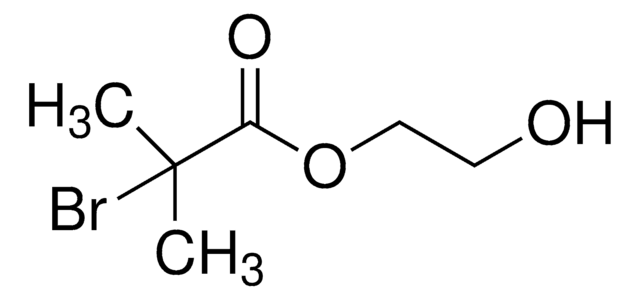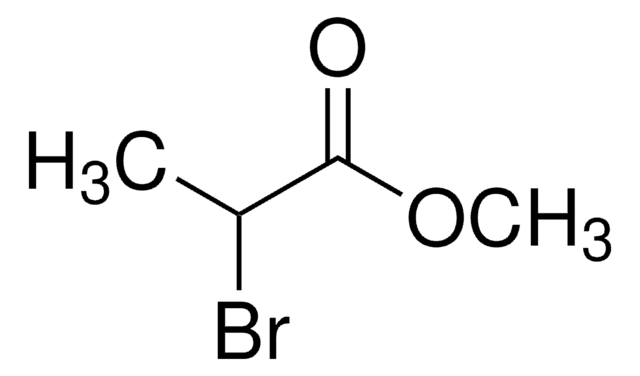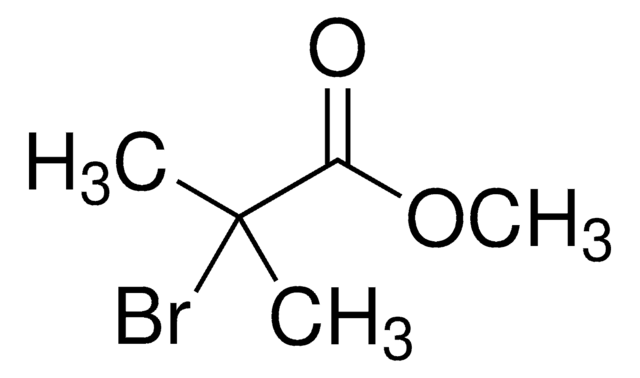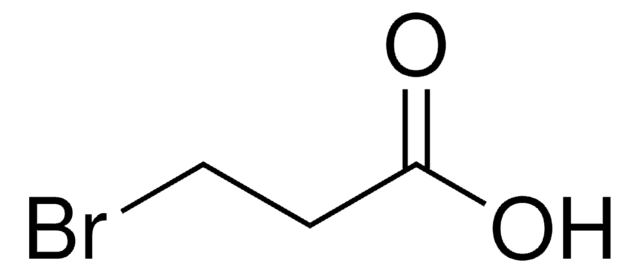306851
2-Bromo-2-methylpropionic acid
98%
Synonym(s):
α-Bromoisobutyric acid, 2-Bromo-2-methylpropionic acid
About This Item
Recommended Products
Quality Level
Assay
98%
bp
198-200 °C (lit.)
mp
44-47 °C (lit.)
functional group
bromo
carboxylic acid
SMILES string
CC(C)(Br)C(O)=O
InChI
1S/C4H7BrO2/c1-4(2,5)3(6)7/h1-2H3,(H,6,7)
InChI key
XXSPGBOGLXKMDU-UHFFFAOYSA-N
Looking for similar products? Visit Product Comparison Guide
General description
Application
Signal Word
Danger
Hazard Statements
Precautionary Statements
Hazard Classifications
Skin Corr. 1B
Storage Class Code
8A - Combustible corrosive hazardous materials
WGK
WGK 3
Flash Point(F)
235.4 °F - closed cup
Flash Point(C)
113 °C - closed cup
Personal Protective Equipment
Regulatory Listings
Regulatory Listings are mainly provided for chemical products. Only limited information can be provided here for non-chemical products. No entry means none of the components are listed. It is the user’s obligation to ensure the safe and legal use of the product.
JAN Code
306851-BULK:
306851-100G:
306851-VAR:
306851-10KG:
306851-25G:
Choose from one of the most recent versions:
Already Own This Product?
Find documentation for the products that you have recently purchased in the Document Library.
Customers Also Viewed
Our team of scientists has experience in all areas of research including Life Science, Material Science, Chemical Synthesis, Chromatography, Analytical and many others.
Contact Technical Service